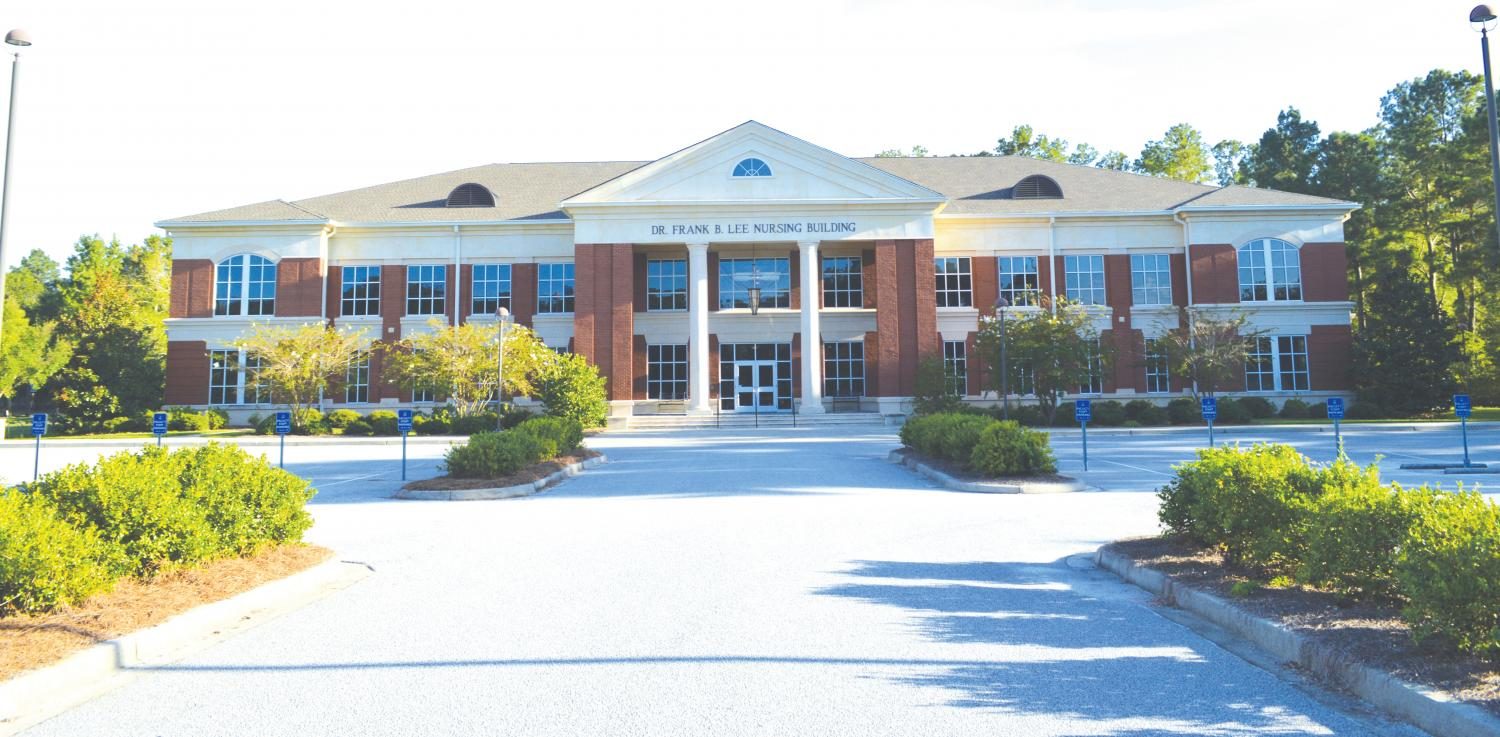FMU nursing receives grant, improves diversity
Photo by: Kyle Graham
Dr. Ruth Wittman-Price hopes that the nursing grant will help increase workforce diversity in the health care field.
FMU’s nursing program received a federal grant from the Health Resources and Services Administration (HRSA) that is intended to help promote diversity in the field of nursing.
This is the fifth federal grant the School of Health Sciences has received to help fund students and the program, according to Dr. Ruth Wittman-Price, dean of the School of Health Sciences.
The four-year grant will support 100 nursing students as they move through the nursing program by providing financial help, assigning graduate mentors to work with undergraduate students and offering additional academic support through the Center for Academic Success and Advising (CASA).
Between 30 and 40 percent of FMU’s nursing program is considered a part of a minority group, but Wittman- Price said that they are hoping to increase that to 50 percent to mimic the population of FMU’s campus.
“The whole goal of the grant is to increase workforce diversity,” Wittman- Price said. “The workforce in any community should mimic the demographics of the community. This will assist us to get that closer in line.”
Wittman-Price said that the grant would help students who are considered “at risk” financially, educationally or economically or who are a minority in the nursing program.
Wittman-Price said that FMU was chosen for the grant because the proposal submitted by the university was written well and received high scores in the review process to determine which schools receive grants.
“They look at the impact it can have, the need of the university, the infrastructure of the university to see if it can support the grant and the grant plan itself,” Wittman-Price said.
CASA worked with the School of Health Sciences to determine which students would be part of the grant program.
According to Wittman- Price, the students were chosen because of any factor that would make them “at risk.” Wittman- Price said that the students could have come from high schools with large percentages of free lunches or have been chosen based on family income, race, ethnicity or gender.
Wittman-Price said the students have been split into groups of 10 and have been paired with a successful graduate student mentor from either the nursing or psychology departments. Students will meet with the graduate mentors twice a month as a group, and the mentors will keep in touch with the students and their professors throughout each semester.
“A mentor will follow them through for four years,” Wittman-Price said. “The goal is to get 50 percent, if not more, of them into the upper division of the nursing program to become successful nurses.”
According to Wittman- Price, the grant participants are in special University Life (UL) 100 classes taught by nursing professors. She also said that students would receive a $1,000 stipend that will be applied to their tuition or be given to them in a change check if their tuition is paid so the students don’t have to work during school.
According to Wittman- Price, the grant itself pays for the five professors who will teach the UL 100 courses, the stipends for the students, the graduate mentors, a database to keep track of the students, a statistician, 25 percent of the cost of a faculty position, 50 percent of a grants manager position and 100 percent of a grants assistant position.
“Not only does the grant assist the students, it assists employment,” Wittman- Price said.
Wittman-Price said she is hoping the grant will have multiple impacts on the nursing program and FMU as a whole.
“The impact the grant should have on the university and nursing program is retaining students that otherwise may not have been retained in college,” Wittman- Price said. “It should increase the diversity in nursing that is needed in the population we are caring for in the Pee Dee, and it will show us what works and what doesn’t work in getting students who are from high risk backgrounds successfully through to a college degree.”
Wittman-Price said that the School of Health Sciences is currently working on a proposal for another federal grant
